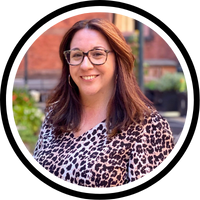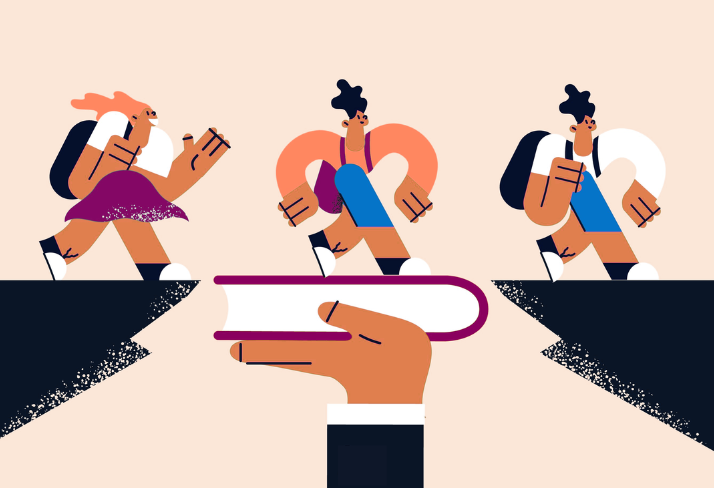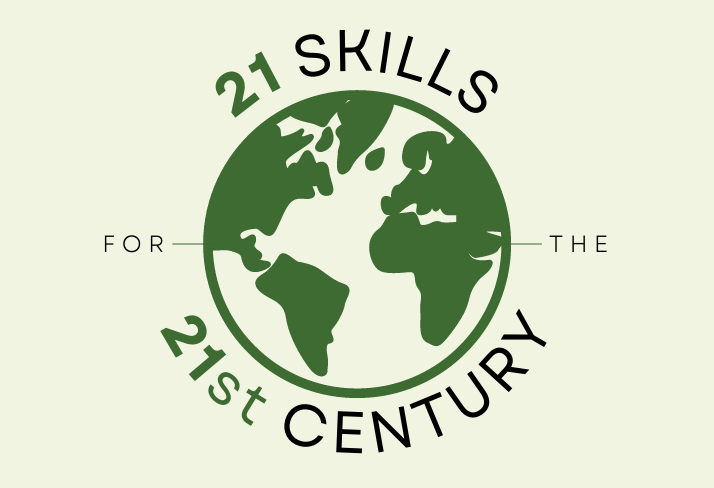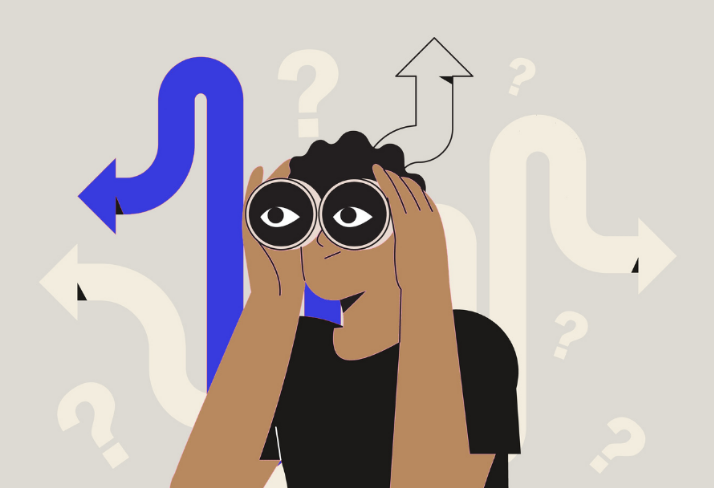|
Reimagine your role in the classroom in service of creating more opportunities for authentic learning.
Although it’s a different building, it still feels like home, the place where I spent the first six years of my teaching career. As I am buzzed into the main entrance, I see students filling the hallway, getting ready to leave for the day. I sign in and take the stairs up to Room 209, Ms. Cunningham’s room. I’m excited to see my former colleague, who has been teaching here for eight years.
Her classroom is decorated with flags, posters of student work, and the desks are grouped in quads. The large windows are a breath of fresh air after teaching in a building with no windows, and I joke with her about the increase in Vitamin D. After a brief catch up, we started talking about how Ms. Cunningham’s teaching practice has changed throughout the years, defining what authentic learning means, and how her role as educator has shifted to teacher as facilitator.
The conversation
Ms. Cunningham: I think authentic learning really relies on the students and what they bring into class, showing them that their experiences are what make this class. It’s not that I have any preconceived notion of what they need to learn or what they need for education, it’s that they’re bringing their passions with them. I’m just here to kind of bring that out. And in doing so, I bring that out of every student. Did you always have this mindset? Ms. Cunningham: I think for the first half of my career, I was very much of a control freak about my classroom and what I was doing. At the time, I felt like if I was leading things and I knew what I was teaching was what was aligned to the curriculum, I could have “control.” After attending the Stanford Hollyhock Fellowship, I began to question my role in the classroom. My classroom is not about me. Before, I was the source, and now, I'm a facilitator. I think that has inspired me to do a lot more group work with students, more individual conferencing, and more conversations in general rather than looking for a product. Even today, we sat in groups; in my first three years, I could never imagine seating my students in groups, but by adjusting my role as facilitator, I showed them that I trust them more and that they have power in their learning. What do you think has been the most noticeable change in your classroom practice? Ms. Cunningham: Fostering curiosity. It should be the students bringing forth curiosity and interest; the teacher is there to aid in that, not necessarily just fill them with what they think students need to know. Am I coming into the classroom with a notion of giving the students what I think they should know, or am I coming into this classroom genuinely getting to know these students as people and then navigating how they want to interact with their learning? Ultimately, I decided that what really means more to me is giving students the space and opportunity to be curious. Learning does not come from me. Learning comes from the students, and they should guide their learning; I'm just here to help out. My role as a teacher is to help them make the map or point them in the right direction. Students tell me where they want to go, and I hope that I can get them there.
The mindset shift
There are a few things that really stood out to me during my conversation with Ms. Cunningham. The first was that this new teaching philosophy was encouraged through a mindset shift. She questioned if she was the source of knowledge, leading her to question the idea of knowledge as a singular term. This is not an easy task — demonstrated by the word “knowledges” being underlined in blue as I type this article — but being the courageous educator that she is, Ms. Cunningham challenged what she had previously learned about the role of a teacher. One person should not be the “keeper of the knowledge”, and students all bring their own knowledges to the classroom, knowledges that should be welcomed and validated.
The curriculum shift
As we continued our conversation, I asked Ms. Cunningham for examples of how she enacts this mindset shift in her classroom. She talked about starting new units with notice and wonder protocols, allowing students to ask their own questions about the information provided. These questions guide their exploration throughout the unit, prompting reading choices and potential final reflection questions. Through these student-led explorations, she provides resources, suggestions, and teaches the students skills they need to master in order to answer their questions and communicate their findings. Rarely will you find her at the front of the classroom.
The classroom space
This leads to the physical classroom space; Ms. Cunningham has arranged the desks in quads on this particular day, encouraging students to discuss their ideas and explore together. There is a couch in the reading corner, complete with several bookcases. Students are welcomed to use the space as they need, moving desks or sitting in the reading corner when they want to get some independent reading done. This classroom setup invites students to use each other as resources and can mutate to fit their needs. Without flexibility of space, mindset and curricular shifts wouldn’t be enough to make this teacher-as-facilitator role possible.
As the sun starts to set, I thank Ms. Cunningham for inviting me into her classroom and sharing her work with me. Her shift from teacher-as-knower to teacher-as-facilitator is inspiring and by no means easy. It requires educators to do what we want our students to do; question what we know, build new knowledge, and enact positive change.
How can you implement instruction that's grounded in curiosity and collaboration? Take part in 21 Skills for the 21st Century to expand your understanding of critical capacities that will prepare today's students for tomorrow's changing world.
|
|
The Center for Professional Education of Teachers (CPET) at Teachers College, Columbia University is committed to making excellent and equitable education accessible worldwide. CPET unites theory and practice to promote transformational change. We design innovative projects, cultivate sustainable partnerships, and conduct research through direct and online services to youth and educators. Grounded in adult learning theories, our six core principles structure our customized approach and expand the capacities of educators around the world.
|
ABOUT US
525 West 120th Street, Box 182 New York, NY 10027 416 Zankel Ph: (212) 678-3161 [email protected] Our Team Career Opportunities |
RESOURCES
Professional Articles Ready-to-Use Resources Teaching Today Podcast Upcoming PD Opportunities |
COACHING SERVICES
Custom Coaching Global Learning Alliance Literacy Unbound New Teacher Network Student Press Initiative |


























